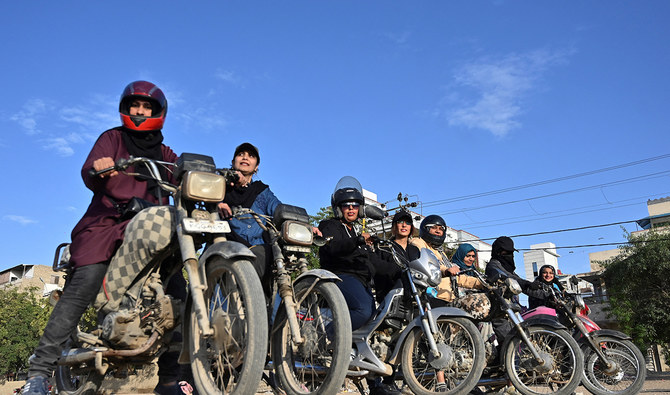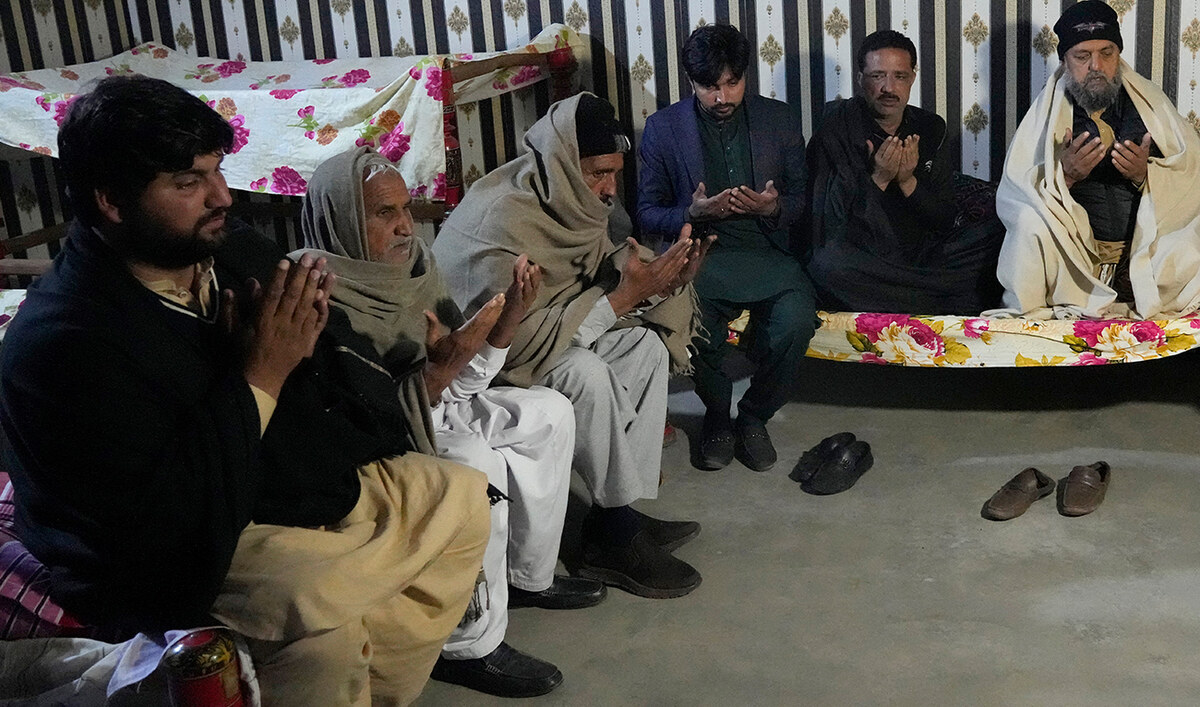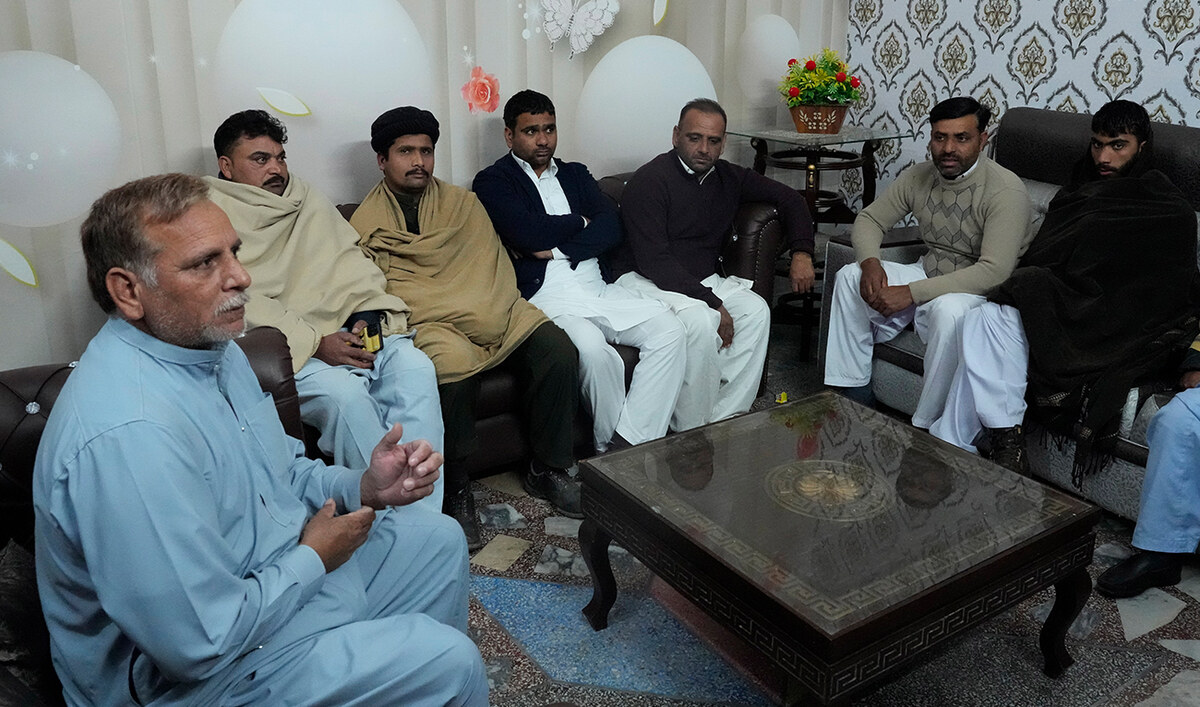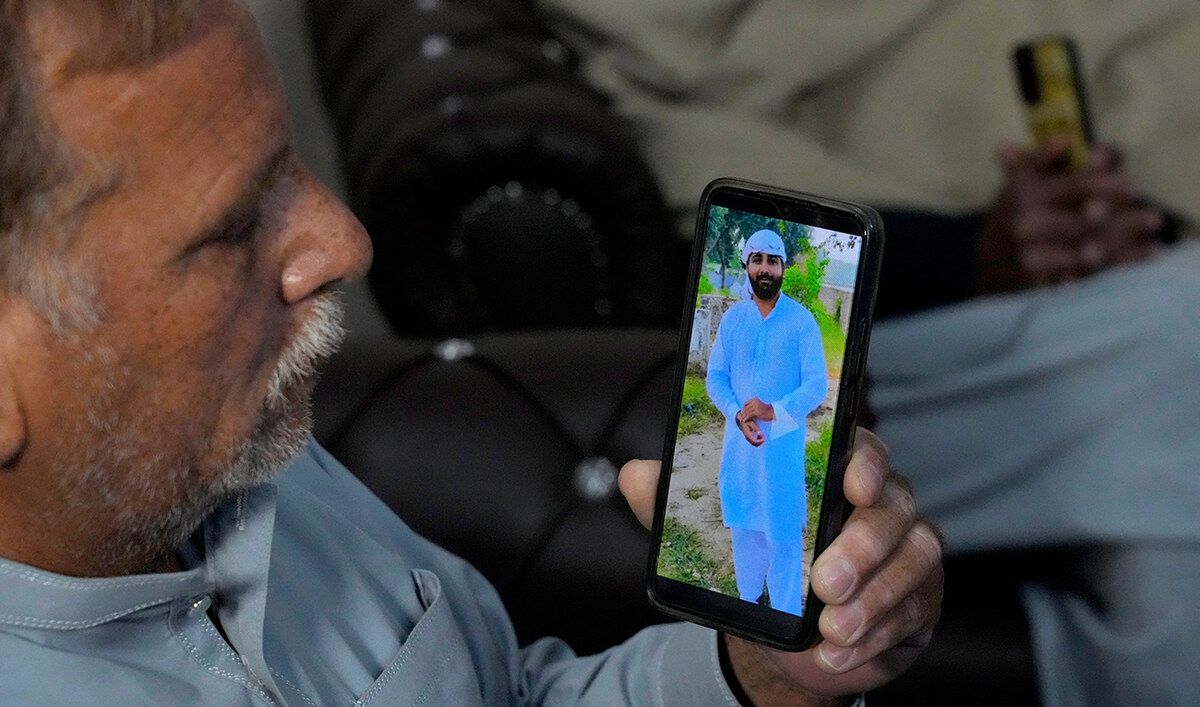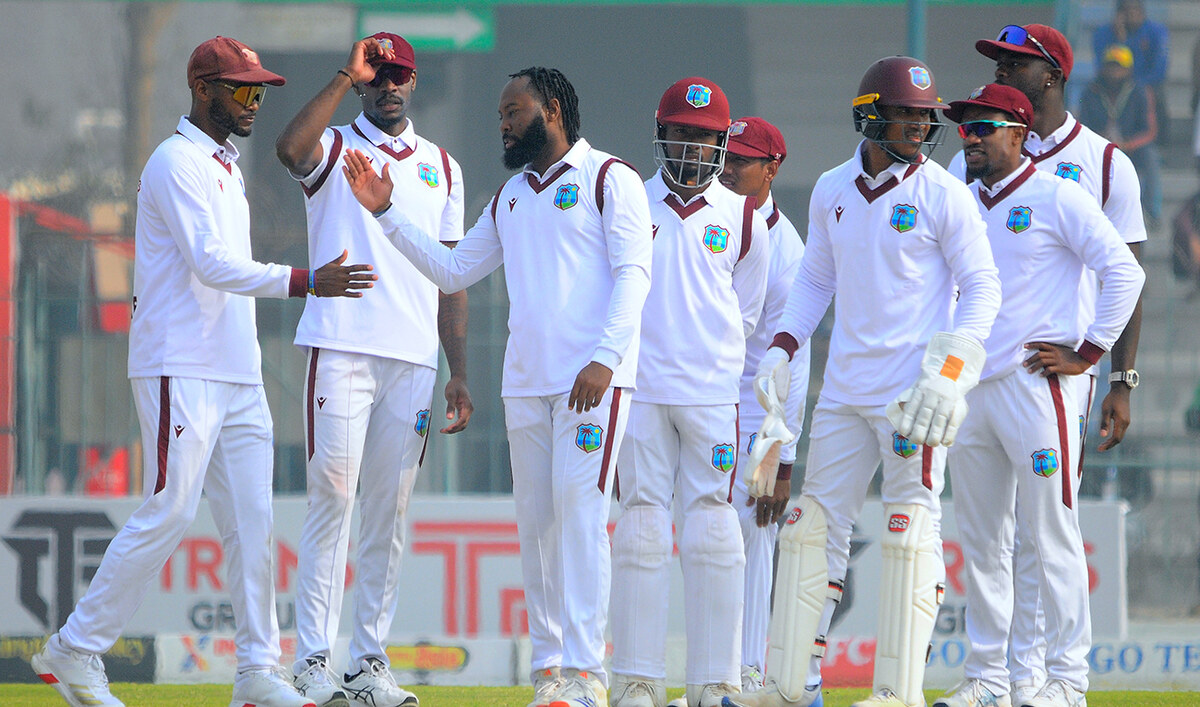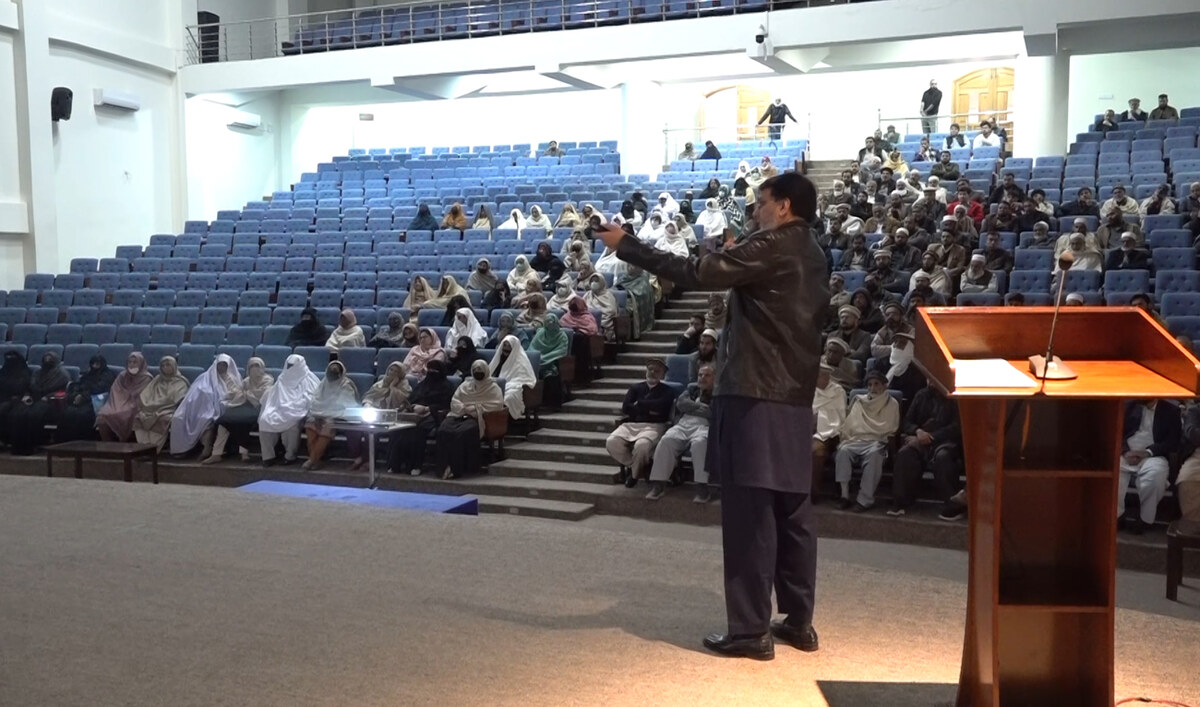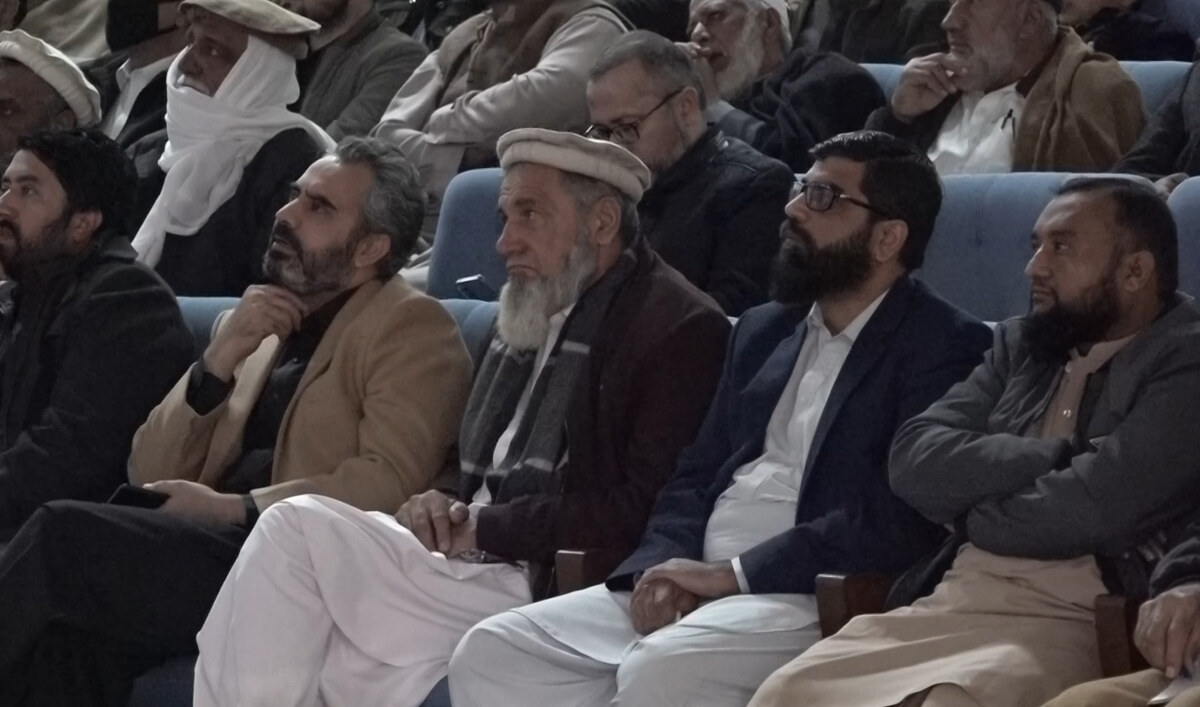KARACHI: Revving round a dusty oval in the heart of Pakistan’s largest city, women on motorbikes practice looping a row of safety cones, their helmets securing colorful headscarves in place.
It is a rare sight in the culturally conservative country, where women are typically relegated to the back seats of cars or to riding side-saddle on motorbikes, ferried by a male relative.
“Change is under way,” says Zainab Safdar, demonstrating how to mount a two-wheeler while cloaked in a pink body-covering abaya.
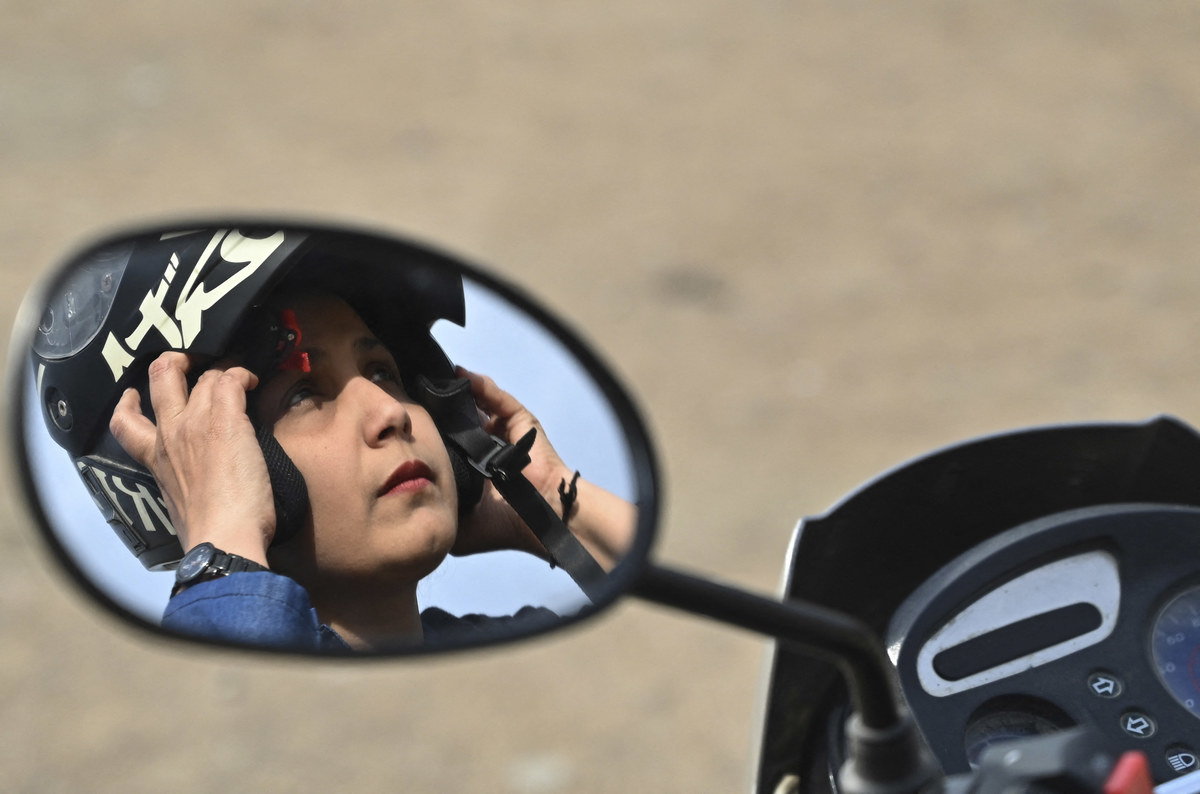
In this picture taken on March 5, 2024, Zainab Safdar, an instructor with the women-only group "Rowdy Riders", adjusts her helmet before riding a motorbike during a riding lesson at an open ground in Karachi. (AFP)
The 40-year-old is an instructor for the “Rowdy Riders,” a women-only group teaching novices in Karachi everything from the basics of balancing on a bicycle to high-octane gear changing and negotiating traffic.
Since being founded in 2017 by a handful of pioneering riders, the self-described “Rowdies” have swollen in number to more than 1,500 housewives, students and professionals.
“In the past, there were misconceptions about girls riding bikes,” Safdar said, referring to doubts about their abilities.
“Fortunately, with greater awareness, these notions have been dispelled.”
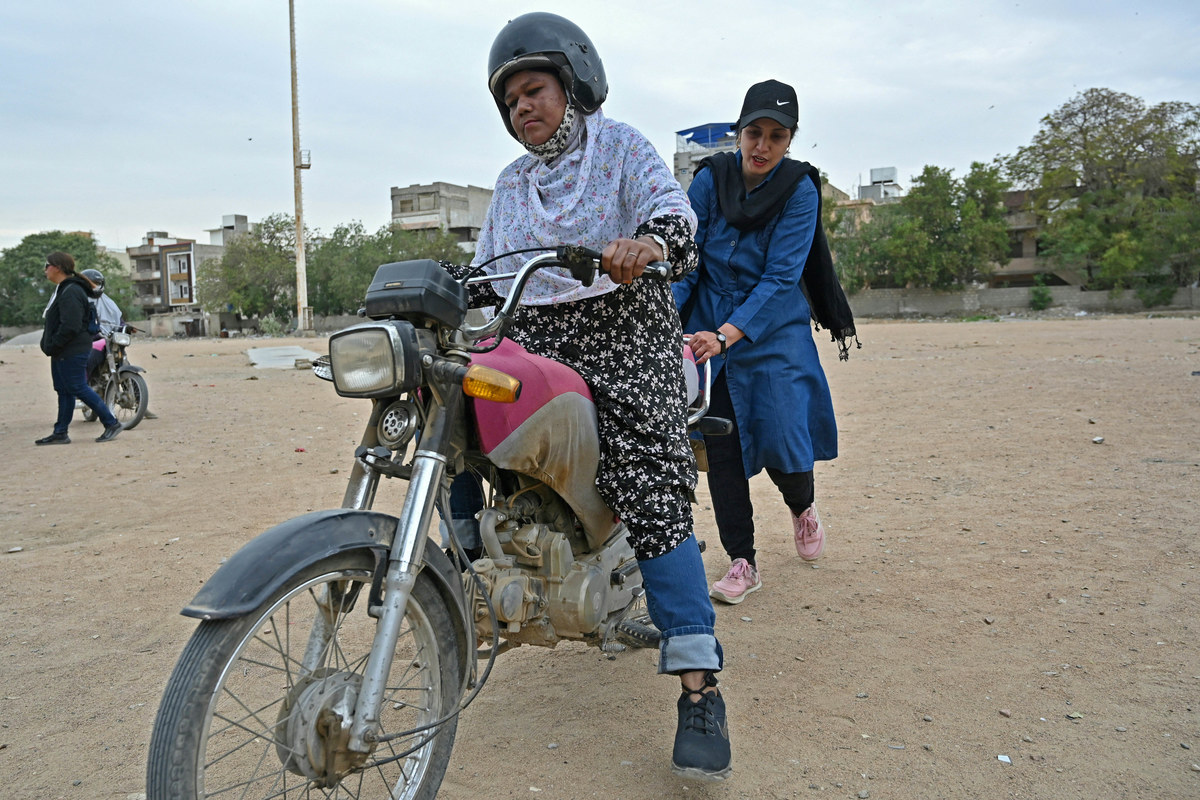
TOPSHOT - In this picture taken on March 5, 2024, Zainab Safdar (R), an instructor with the women-only group "Rowdy Riders", assists a student ride a motorbike during a riding lesson at an open ground in Karachi. (AFP)
Women’s participation in the workforce is impacted by the limited availability of public transport services that ensure their safety.
In the sprawling megacity, granting women the skill and confidence to join legions of male bikers in the helter-skelter of congestion unlocks a new tier of freedom.
Most of the riders hail from Karachi’s middle class, but rigid gender norms often still hold sway.
University lecturer Shafaq Zaman said “it took a while to get permission” from her family to start classes to master a pedal bike two months ago.
Among the few dozen bikers assembled under the mid-afternoon sun, she looks on with her seven-year-old daughter Aleesha as a convoy of women open up their engines and rip past in a haze of dust.
“I am so inspired that now I have my own dream for me, that I want to ride on a heavy bike. I want to ride the whole of Pakistan,” 30-year-old Zaman said.

In this picture taken on March 5, 2024, Shafaq Zaman prepares to ride a motorbike during a riding lesson with the women-only group "Rowdy Riders" at an open ground in Karachi. (AFP)
Her story is not unusual. In Pakistan, very young boys are often seen steering motorbikes, but many of the “Rowdies” did not learn to ride a bicycle until well into adulthood.
“There should be a bike in every house, and usually there is, but it’s rotting because men do not use it and women don’t know how to,” said Sana Kamran, sitting confidently astride a 110cc Suzuki.
“If women can manage household responsibilities and earn a living, why can’t they ride a bike for their convenience?” the 41-year-old asked.
Motorbikes are ubiquitous across Pakistan — most commonly red Honda models or cheaper Chinese reproductions, considered capable of mastering any terrain.
The quest to conquer a bike has seen 26-year-old Farwa Zaidi suffer multiple bone fractures — but the injuries are a badge of honor she wears as proudly as the “Rowdy Riders” crest on her jacket.
“Here I am, standing strong,” she said alongside her 70cc electric scooter.
At four feet and six inches (137 centimeters) tall, Zaidi said her small stature made it difficult to claim a spot on crammed city buses.
Learning to ride gave her a new sense of possibility.
“Once we master cycling, it instils a new-found confidence in our ability to conquer other challenges,” she says.


